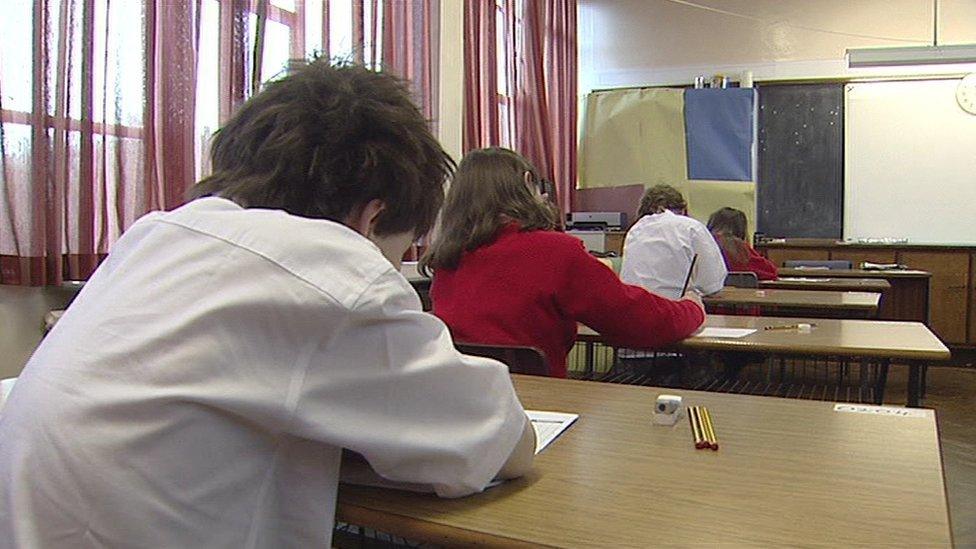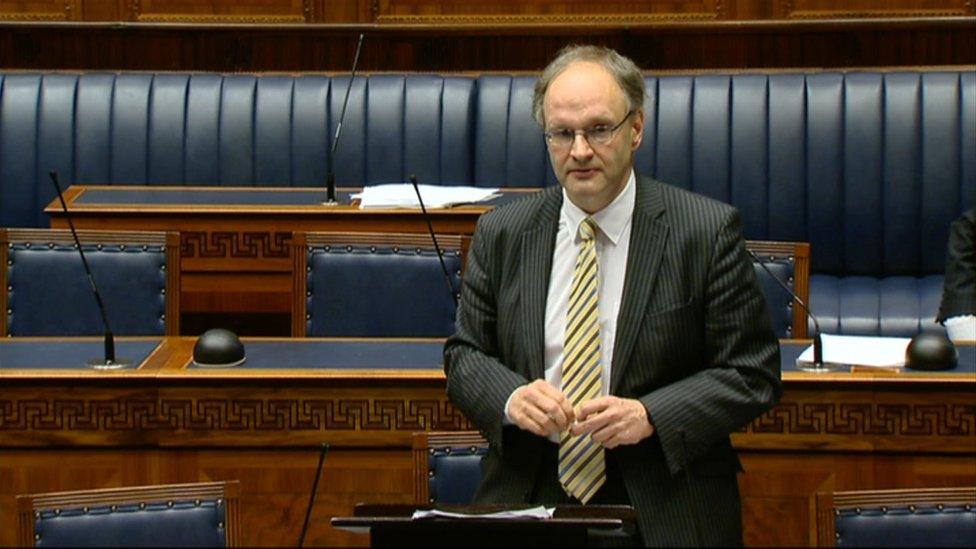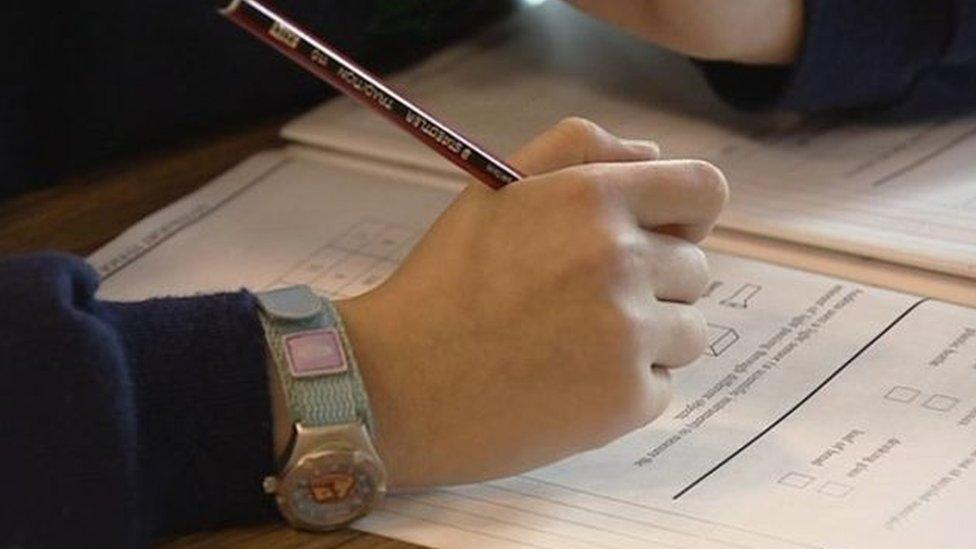Academic selection: Proposal for single transfer test
- Published

The aim of the talks is to have a common test in place by November 2019
The two organisations which run the separate school transfer tests in Northern Ireland have said they want to produce a common test.
The Association of Quality Education (AQE) and the Post-Primary Transfer Consortium (PPTC) issued a joint statement announcing the move.
"We believe this to be in the best interest of pupils, parents and schools," said the groups.
Sources told the BBC that talks would begin in early March.
The aim, they said, was to have a common test in place by November 2019.
Education Minister Peter Weir welcomed the move, saying he hoped to see "a common entrance test within the very near future".
In turn, the AQE and PPTC statement said they appreciated his "input and support".
In October 2016, the minister appointed Prof Peter Tymms, from Durham University's school of education, to begin a process to find a common test.

Education Minister Peter Weir support the introduction of a single exam
Prof Tymms' subsequent report to the Department of Education (DE), which has been obtained by the BBC, provides an outline of the form a common test could take, although it states that this is "solely intended to form the basis for initial discussion".
It suggests that:
Children should sit three test papers, each lasting 45 minutes
Two papers will be in multiple choice format
The third paper will not be multiple choice and will contain writing and maths exercises
The three papers could be taken on a single day
However, the report also recommends that pupils should continue to sit the tests in post-primary schools rather than their own primary schools.
Currently, primary school children aged 10 and 11 can choose to sit either test, both tests, or decide not to sit them.
It is estimated that about 2,000 pupils sit both tests.
They are used to decide which pupils are admitted to the vast majority of grammar schools.
Contentious issue
However, there are some significant differences between the current AQE and PPTC tests.
Parents pay a fee to enter their child for the AQE tests, unless they are eligible for free school meals.
In 2016 that fee was £46, whereas PPTC do not charge a fee for entrance to their test.
The formats of the tests also differ.
The PPTC test involves two multiple choice papers taken on one day set by GL Assessment, a company specialising in educational tests.
The AQE test involves three papers taken over three Saturdays which pose a series of English and Maths questions and tasks.
Prof Tymms' report acknowledges that these represent "major differences of opinion" between the two testing organisations.
"But there is good will and it does not, to the outsiders who wrote this report, seem that the two groups are very far apart," he states.
Academic selection, however, remains a contentious issue.
Recently, a policy group run by the Department of Education (DE) criticised the impact of selection.
A significant number of children, though, enter the transfer tests each year.
- Published21 February 2017

- Published12 November 2016

- Published7 September 2016
